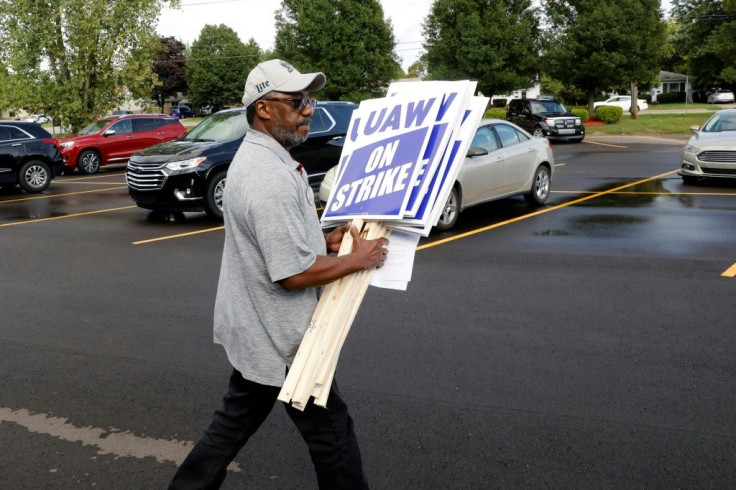US Firms Say Near-term Outlook Dimming Amid Slow Growth: Fed

Less than stellar US growth in recent weeks has caused many businesses to lower their outlooks and they now expect the economy to weaken, the Federal Reserve said Wednesday.
The Fed later this month is widely expected to cut interest rates for the third time this year as policymakers work to provide support for an economy that has begun to sag -- even though for the moment it continues to outshine the rest of the industrialized world.
"The US economy expanded at a slight to modest pace... as business activity varied across the country," the central bank said in its beige book report on the economy.
"Business contacts mostly expect the economic expansion to continue; however many lowered their outlooks for growth in the coming six to 12 months."
Most economists do not expect a recession in the next year but forecasting models still show the risk is increasing.
The hardships that manufacturing and agriculture face, according to the report, have not eased.
And elsewhere the picture has been uneven, though household spending has remained "solid," according to the Fed's report, which gathers anecdotal accounts from around the country.
The mood was generally better in the southern and western regions of the country, while the Midwest and Great Plains -- regions key to President Donald Trump's election upset in 2016 -- were gloomier, according to the Fed.
Hard to find workers
Oxford Economics said in a client note that the report was "lackluster" and pointed to more rate cuts from the central bank.
"We still expect two more rate cuts this year, in October and December," the firm said.
While US economic expansion is in a record 11th year and unemployment remains at 50-year lows, Fed members at their most recent meeting said they had become "more concerned" by mounting risks.
As the world economy begins to sputter, policymakers in recent weeks have said a clearer picture has emerged of the threat from President Donald Trump's trade wars: Skittish companies, unsure of markets and prices, have held back on investment and could soon reduce hiring, which could then eat into consumer spending and growth.
But according to the beige book, for many employers the main barrier to more steady hiring remains the lack of available and qualified workers.
A major New York employment firm said "almost all job candidates are merely jumping from other jobs," the report said, while pressure to fill open positions in the Philadelphia region remained "acute."
But among manufacturers, the labor shortage had a different effect. Rather than lay off employees who could be hard to replace, some firms reduced worker hours instead.
In the Boston region, "signs of slowing have become more widespread," while growth in the New York area "slowed to a subdued pace."
Conditions improved in the Chicago and St Louis regions.
The early fallout from a month-long nationwide strike by UAW workers at General Motors plants "was limited," the Fed said.
Wall Street was largely unmoved by the report, finishing slightly lower after Commerce Department data showed weakening consumer demand in September.
© Copyright AFP 2024. All rights reserved.





















